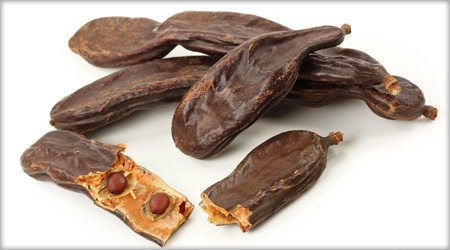All About the Duty of an Emulsifier in Food and Its Significance in Modern Cuisine
Emulsifiers are essential in contemporary food, assisting in the blend of immiscible fluids like oil and water. Their ability to maintain mixes boosts the structure and flavor of different food products. From salad dressings to baked products, emulsifiers play a significant duty in both industrial and home food preparation. Yet, the science behind their feature and the future developments in their usage stay much less checked out. Emulsifier In Food. What a lot more could be unearthed regarding these essential culinary representatives?
Comprehending Emulsification: The Scientific Research Behind the Refine
Although emulsification may appear like an easy cooking technique, it entails complex scientific principles that are important for developing secure mixes of immiscible fluids, such as oil and water. At the heart of this procedure exists the principle of surface tension, which avoids both fluids from blending normally. Emulsifiers, substances that reduce surface tension, play an important duty in facilitating the combination of these liquids. They possess both hydrophilic (water-attracting) and hydrophobic (water-repelling) properties, enabling them to anchor themselves at the interface between oil and water.
When an emulsifier is introduced and the mix is flustered, it creates a safety obstacle around spread beads of one liquid within the other, supporting the blend. This activity not just improves structure and mouthfeel in food but also contributes to their visual appeal. Emulsifier In Food. Understanding the science behind emulsification is fundamental in modern-day food, enabling chefs to create a variety of sauces, dressings, and emulsified recipes
Usual Kinds of Emulsifiers Utilized in Food
Emulsifiers are important active ingredients in the food market, playing an important function in supporting mixes of oil and water. Various kinds of emulsifiers are generally made use of, each with distinct homes suited for various applications. Lecithin, stemmed from soybeans or egg yolks, is just one of one of the most prominent natural emulsifiers, frequently located in chocolates and dressings. Mono- and diglycerides, which are stemmed from glycerol and fats, are commonly made use of in baked products and margarine to boost structure and expand service life. An additional common emulsifier is polysorbate 80, favored for its capacity to improve the uniformity of ice lotions and sauces. Furthermore, xanthan gum tissue and guar gum offer as thickening agents that likewise add to emulsification in gluten-free items. These emulsifiers are essential to developing a stable, tasty item in modern food solutions, making sure a pleasant sensory experience for consumers.
The Duty of Emulsifiers in Different Food Products
A variety of foodstuff rely upon emulsifiers to attain desired structures and security. These compounds help with the mixing of immiscible fluids, such as oil and water, which is essential in numerous processed foods. For example, in salad dressings, emulsifiers assist keep a consistent mix, protecting against splitting up and enhancing shelf life. In baked products, they add to an uniform crumb framework and wetness retention, boosting total top quality.
Emulsifiers also play a considerable function in dairy products, such as ice cream and yogurt, where they support fat blobs, making certain a smooth mouthfeel. Additionally, in condiments and sauces, they improve viscosity and improve spreadability. This functionality is vital in the production of chocolates, margarine, and mayonnaise, where a cohesive item is essential. Overall, using emulsifiers in numerous food is important to contemporary food manufacturing, enhancing stability and uniformity throughout a large range of products.
How Emulsifiers Enhance Texture and Taste

When integrated into food items, emulsifiers considerably improve both texture and taste, creating an even more satisfying eating experience. These materials promote the mixing of components that generally do not blend well, such as oil and water, leading to a smoother, creamier consistency. This not only improves mouthfeel however also permits flavors to spread uniformly throughout the item, magnifying the overall preference.

Emulsifiers in Home Food Preparation: Tips and Techniques
Just how can home cooks efficiently use emulsifiers to improve their meals? Emulsifiers play a vital function in accomplishing desirable textures and flavors in homemade dishes. Using egg yolks in mayo or hollandaise sauce permits for a steady emulsion, combining oil and water properly. Home chefs can likewise try out mustard, which acts as an emulsifier in vinaigrettes, ensuring a smooth uniformity.
In baking, including lecithin, located in egg yolks or soy, can enhance dough stability and dampness retention. Furthermore, using commercial emulsifiers like xanthan gum tissue or guar periodontal can help enlarge sauces and dressings while preserving a creamy mouthfeel.
When developing gelato or whipped toppings, emulsifiers can protect against ice crystal development, leading to a smoother texture. By mastering these methods, home cooks can greatly raise their culinary productions, supplying delightful and constant dishes that display the power of emulsification.
The Future of Emulsifiers in Culinary Development
As the cooking globe remains to progress, the role of emulsifiers is positioned to end up being varied and progressively innovative. Advances in food scientific research are leading to the growth of new emulsifying representatives originated from natural resources, which deal with health-conscious consumers and boost the sensory top qualities of recipes. Technologies such as plant-based emulsifiers are getting grip, permitting cooks to create vegan and allergen-free alternatives without endangering texture or taste.
Furthermore, using emulsifiers in molecular gastronomy is broadening, making it possible for cooks to try out one-of-a-kind structures and discussions that astound restaurants. As sustainability comes to be a concern, the future may see a change towards green emulsifiers that decrease ecological influence.
Inevitably, emulsifiers will certainly continue to play an important function in cooking technology, linking blog here the space between custom and modernity, and permitting cooks to press the limits of creativity in their kitchens.
Frequently Asked Concerns

Are Emulsifiers Safe for People With Allergies?
Emulsifiers can be safe for individuals with allergic reactions, depending upon their details level of sensitivities. However, certain emulsifiers, originated from allergenic sources like soy or eggs, may cause reactions, demanding mindful ingredient examination and assessment with health care professionals.
How Do Emulsifiers Affect Food Rack Life?
Emulsifiers boost food service life by maintaining combinations, preventing splitting up, and minimizing microbial growth. This my website security helps maintain appearance and flavor gradually, allowing products to stay risk-free and enticing for consumption much longer than without emulsifiers.
Can Emulsifiers Be Derived From Natural Resources?
Yes, emulsifiers can be originated from natural sources such as plants, eggs, and dairy products (Emulsifier In Food). These natural emulsifiers assist stabilize mixes, enhancing appearance and consistency in different food applications while being favored for health-conscious customers
What Are the Environmental Influences of Emulsifier Production?
The environmental effects of emulsifier manufacturing consist of resource exhaustion, environment devastation, and pollution from synthetic procedures. All-natural emulsifier sourcing can mitigate some effects, however in general, commercial techniques still pose considerable environmental obstacles to environments worldwide.

Are There Vegan Emulsifiers Available in the marketplace?
Yes, there are numerous vegan emulsifiers readily available in the marketplace, such as lecithin originated from soy or sunflower, guar gum tissue, and xanthan periodontal. These options satisfy plant-based diet regimens without jeopardizing emulsifying buildings.
Emulsifiers are crucial components in the food market, playing an essential duty in maintaining blends of oil and water. A range of food products rely on emulsifiers to achieve desired textures and security. When included into food items, emulsifiers greatly boost both structure and flavor, developing a more satisfying consuming experience. Furthermore, emulsifiers can maintain air pockets in whipped products like mousses and creams, leading to a light and airy appearance. Emulsifiers improve food rack life by supporting blends, avoiding separation, and minimizing microbial development.